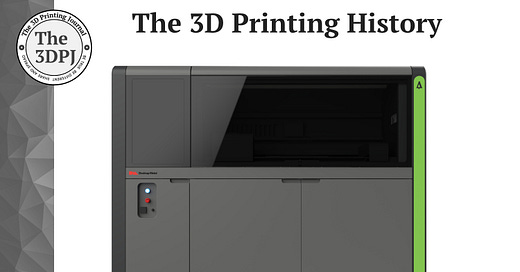10-31-2022: Desktop Metal announced the Shop System Forust Edition, marking it as the first high-speed 3D printer for upcycled wood parts
Despite its innovative premise, the project hasn’t gained significant traction
On October 31, 2022, Desktop Metal officially launched the Shop System Forust Edition, a unique 3D printer designed to process powdered wood, which debuted three weeks later at the Formnext 2022 trade fair in Frankfurt. The machine, based on binder jetting technology, enabled the creation of wooden parts using sawdust recycled from wood processing.
The technology behind Forust was not originally developed by Desktop Metal; it was pioneered by the California-based Emerging Objects, founded by Ronald Rael and Virginia San Fratello. Emerging Objects specialized in experimental materials and 3D printing applications for architecture, design, and art, and Forust was officially announced on November 12, 2019.
Forust technology allows for the creation of items using wood waste and lignin, a natural polymer found in plant cells. By utilizing waste materials, Forust facilitates the production of items resembling solid wood while maintaining an eco-friendly profile. The process involves bonding layers of powdered wood waste with lignin, creating the appearance of wood grain in 3D-printed products. Initially, Forust targeted the furniture industry, offering sustainable options for producing furniture, panels, and decorative items, attracting interest from designers and architects.
In 2021, Forust technology caught the attention of Desktop Metal, which acquired it, recognizing its potential in the growing eco-friendly materials market. While Desktop Metal aimed to adapt Forust for broader industrial applications, shifting market conditions and financial challenges led to a reduced focus on the technology by 2023.
Currently, Forust’s future remains uncertain. Following Nano Dimension’s acquisition of Desktop Metal, all portfolio companies (including Markforged), are under review, and unprofitable or non-strategic ventures may be phased out. This situation casts doubt on Forust’s future despite its potential, as the technology has yet to be commercialized successfully.
At present, the situation resembles the fate of ChefJet, a 3D printing technology for sugar acquired by 3D Systems in 2013, which was discontinued after a year and a half, and was drifting into oblivion. Now is being revived by its original founders. Will the same thing happen to Forust? Or will Nano Dimension see great market potential in it?
Source: www.businesswire.com





